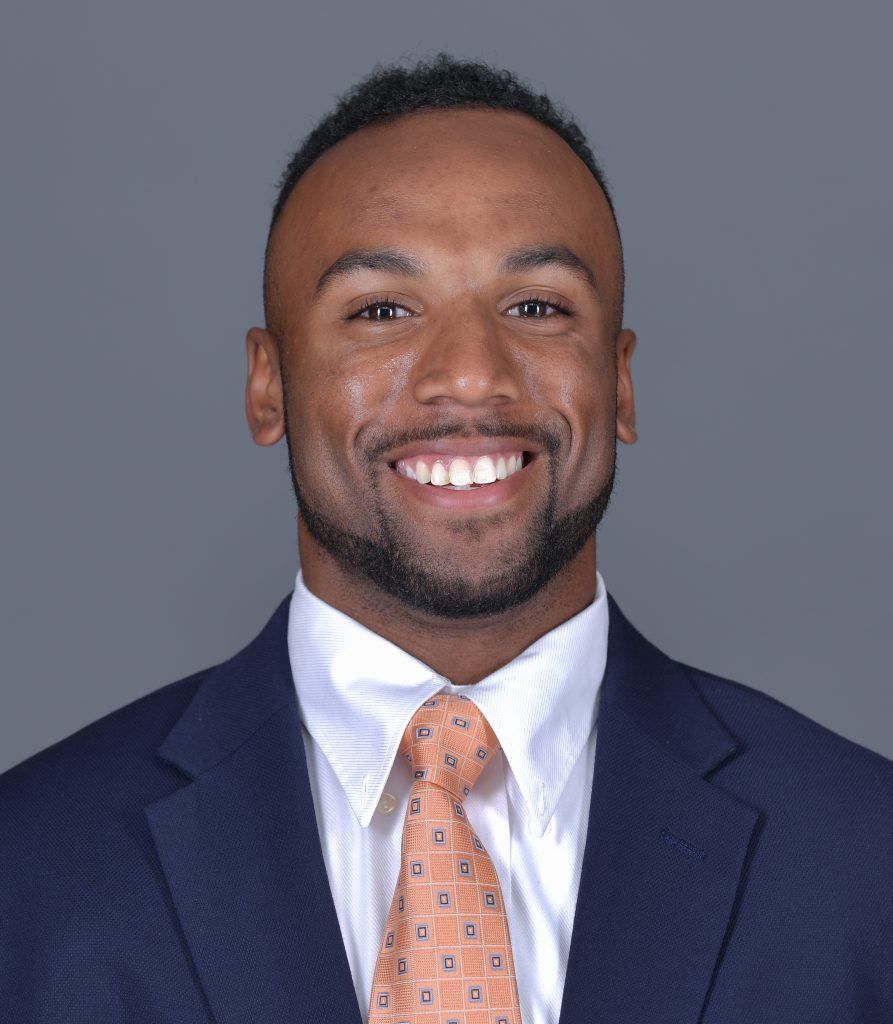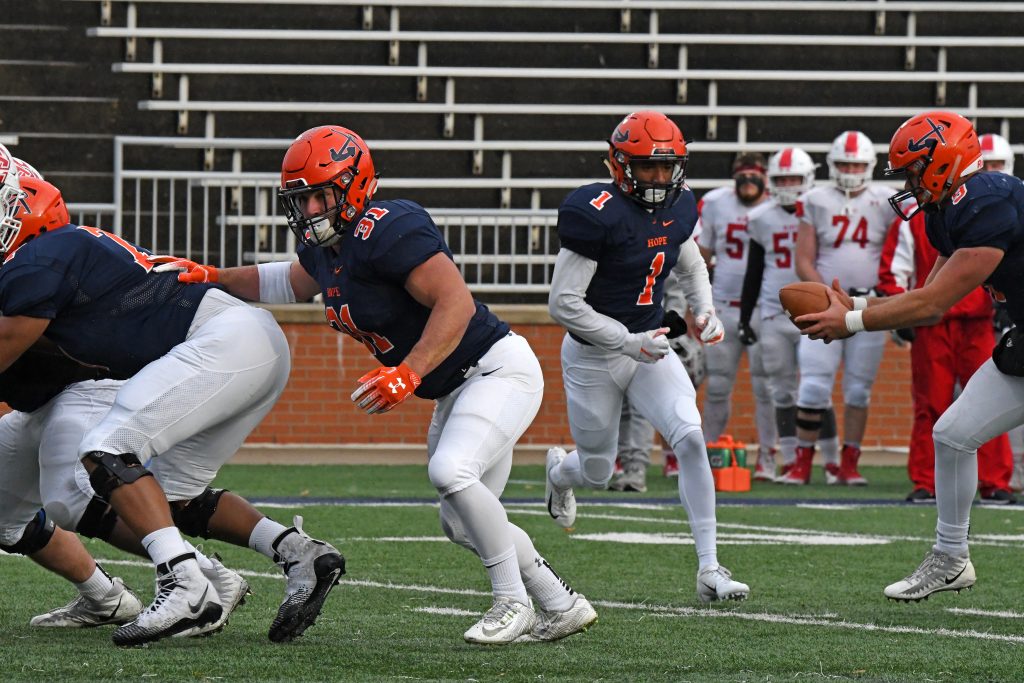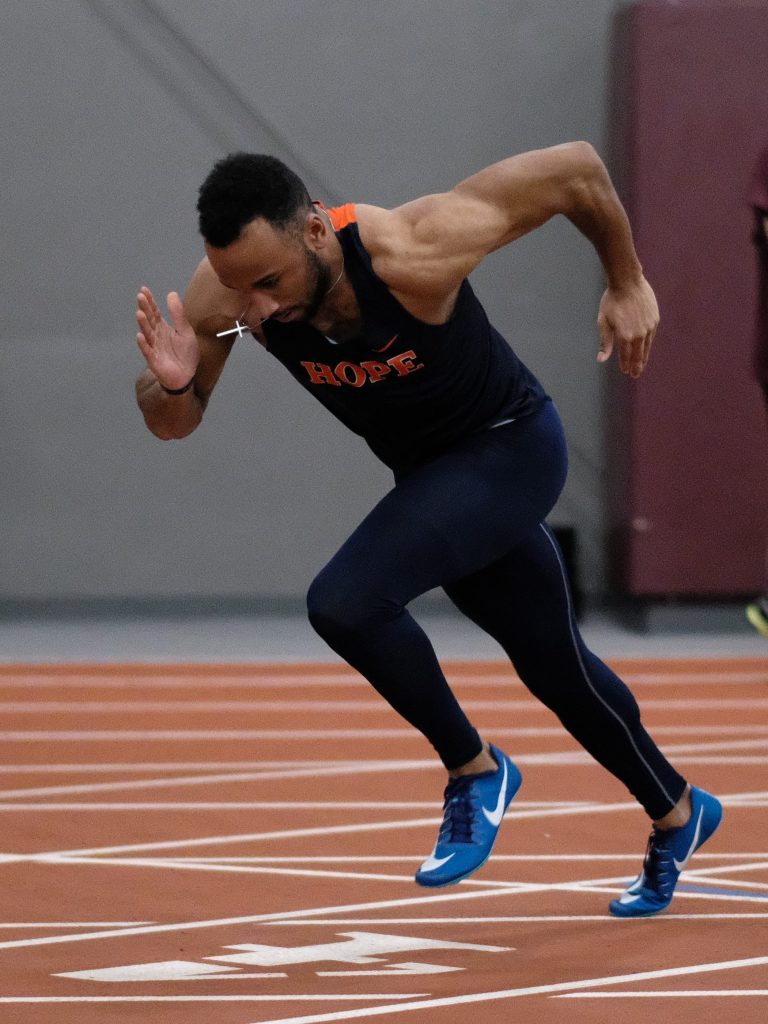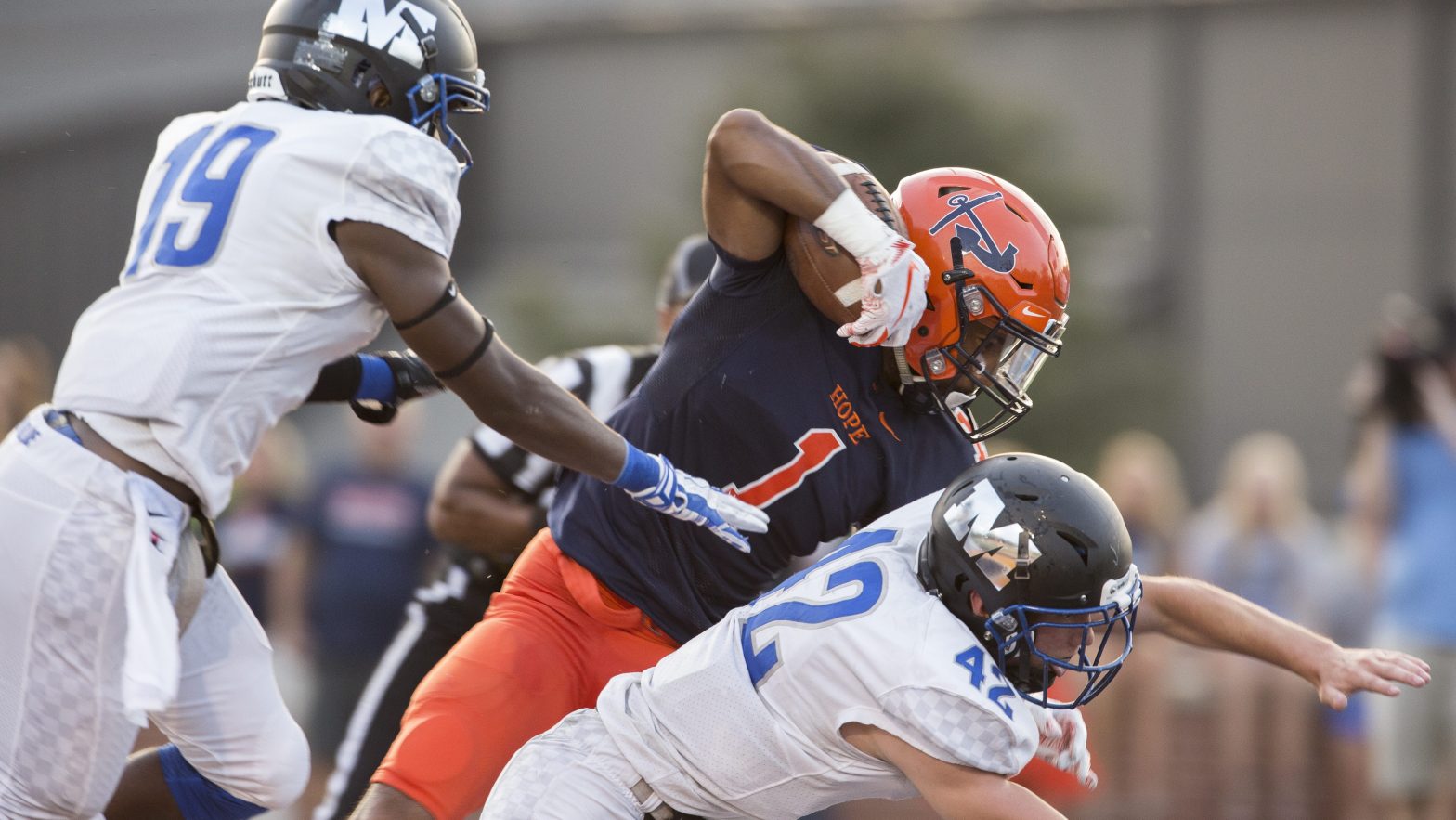Emari Hardy walked into the Phelps Dining Hall with his football team this August, wearing his hat on backwards and a big smile on his face.
The Hope College junior is quite comfortable around campus now. But he recalls his first days as a college freshman in 2017 when that wasn’t always the case.
Instead, at that time, questions of uncertainty swirled inside his head: “How do I balance football and studying? What if I have questions about my future? Whatif I’m stressed, and I need someone to talk to? Where do I go?”

The peace of mind Hardy sought was found when he enrolled in Hope’s FOCUS program which aims to help incoming freshman transition to college through additional support and advising.
“Coming in my freshman year, the FOCUS program helped me a lot,” said Hardy, a thriving two-sport student-athlete. “It helped me stay on track from high school to college. The program helps students plan and study, and it helped me balance school and football.”
Hardy has chosen psychology as his major. He is building on an interest that started in high school.

“I’m thinking about going into child psychology or sports psychology,” Hardy said. “This past spring semester, I took a sports psychology class and I really liked it. I’ve learned to be aware of the mental aspect of life, more aware of people and how they decide to do things. It’s helped me recognize that in other people and not to be too quick to judge everyone. You have to get to know them and understand where they’re coming from.”
Hardy is grateful for how Hope’s FOCUS program helped set him up for success on and off the field. The FOCUS program — which stands for Fall Opportunity to Continue Upward Scholastically — has been helping Hope students since the 1970s. The new director of the program is Betsy Hoisington.
“This program is all about effort,” Hoisington said. “If a student shows up, takes advantage of support and resources, and does the work, their potential for success is limitless. When students, like Emari, see this as an opportunity to build a solid academic foundation, they get to build upon their new skills and abilities the rest of college and beyond.”

Hope College football coach Peter Stuursma sees the benefits for Hope students, regardless if they participate in athletics or not.
“The FOCUS program, in my opinion, is a Hope gem,” Stuursma said. “We take young people who show great potential in high school, but their SATs or GPA don’t show that on paper. We know they have the ability to work because they’ve shown progression through high school. When they get to Hope, they meet with an advisor every week. They have certain checkpoints and established regimens like study schedules and communication with professors. It helps give them the strategy and the tools.”
The advisor who mentored Hardy during his first semester was David James, an adjunct associate professor of English and the coordinator of academic coaching. He has been a FOCUS advisor since 1990.
“Professor James helped me a lot,” Hardy said. “I would meet with him every Friday, and we’d go through my schedule and he’d make sure I was getting things done. If I was struggling in a class, he’d help get me a tutor. It was nice to have someone to help in the transition. We’d talk about football, as well.”

Stuursma said the FOCUS program is a great benefit to student-athletes such as Hardy, who is a 5-foot-11 wide receiver for the Hope football team as well as a sprinter for the Flying Dutchmen indoor and outdoor track and field teams. Last year, Hardy played in 10 games, collected 153 yards in receiving and scored one touchdown.
Hardy said knowing how to block for his running backs is just as important as running patterns and catching passes.
“As a wide receiver in our program, there’s a lot of things they expect you to do,” he said. “With the guys we have running the ball, when they get out on the edge, as a receiver, we have to know how to block. And you also have to make sure you can catch the ball when the play calls for it because that might be the only chance you get.”
“Actually, (student-athletes) often say it’s more helpful when they are in-season because things are regimented. The majority of student-athletes say they do much better, despite being tired and having less time, because they don’t have time to goof around.” — David James
“We’ve always felt that our student-athletes do better in school during the (football) season than out-of-season,” Stuursma said. “That’s because of structured time and time management they have to employ. They don’t have time to do other things. They have to do school, football, study, meals, rest, repeat.”
James agrees.
“You’d think (playing a sport) would be a disadvantage,” James said of student-athletes. “Actually, (student-athletes) often say it’s more helpful when they are in-season because things are regimented. The majority of student-athletes say they do much better, despite being tired and having less time, because they don’t have time to goof around.”
Staying focused is a key to success, whether in a competitive athletic setting or in the classroom. This fall, Hope’s FOCUS program is helping between 40 and 45 students and aiming for more success stories like Hardy’s, James said.
“It worked how it was supposed to work with Emari. He did quite well,” James said. “I would say the overall success rate in the program is tremendous.”



Thank you for sharing an inspiring story. I am so glad that the college sees the value of a program like this. I Hope that it reaches many students with yet to be discovered potential.